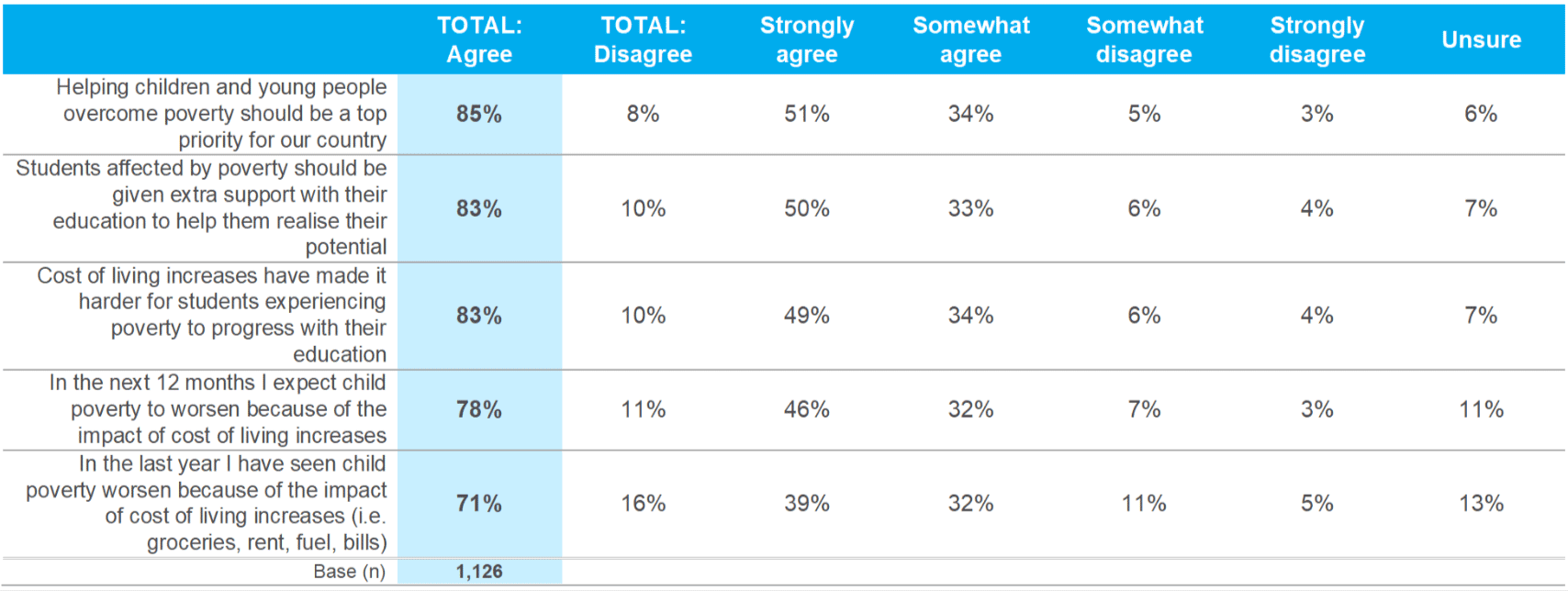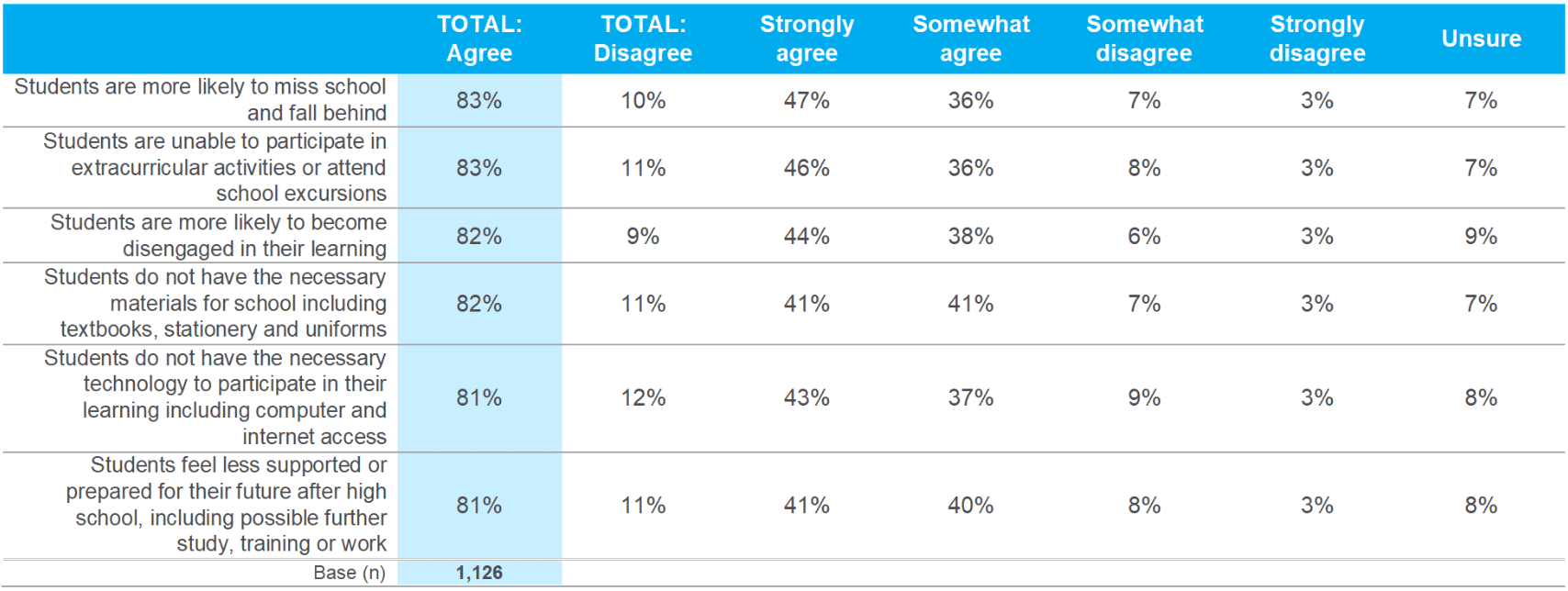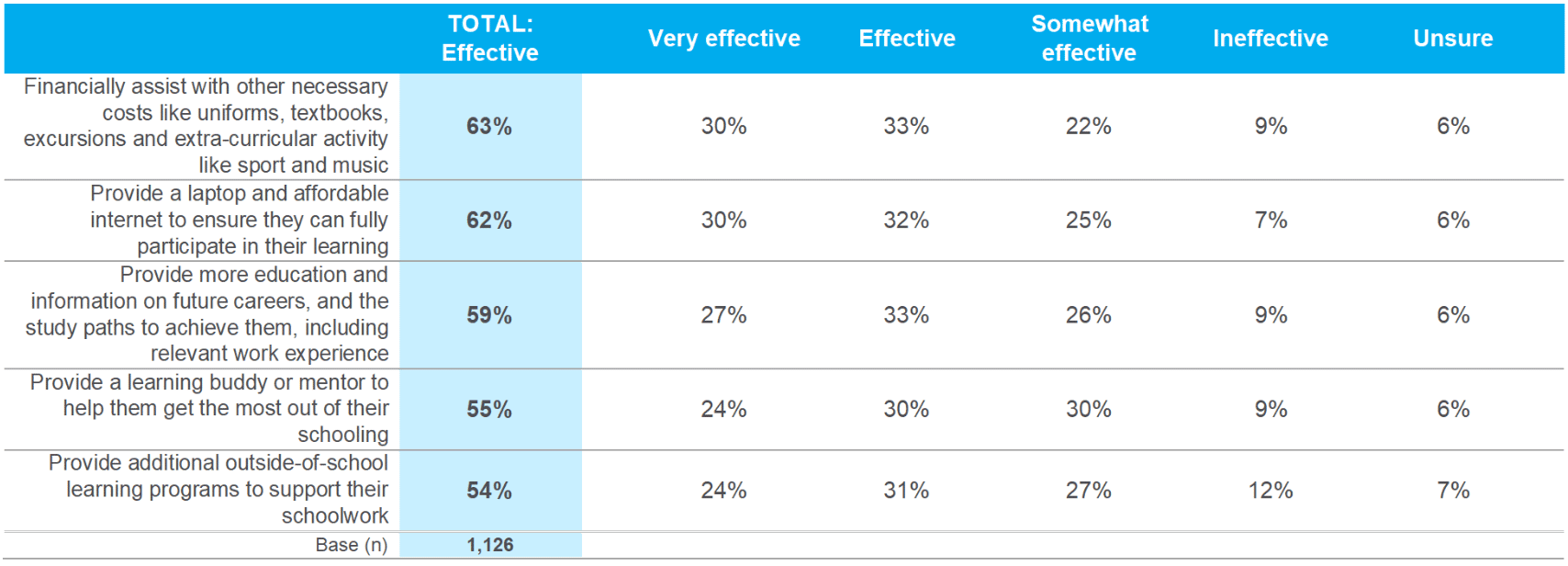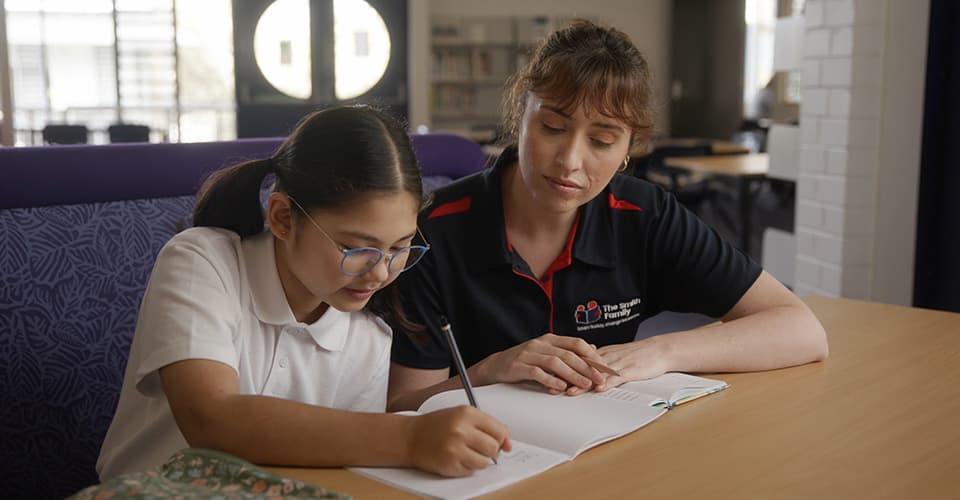
Our learning support and mentoring programs in 90 Australian communities directly help children in need achieve their goals through education.
View all programs 
KEY FINDINGS:

I see it as the number 1 issue, as a widening gap between rich and poor will only lead to a fragmented society.


Families are struggling to afford school needs like textbooks, school supplies and other materials.

Computer proficiency and basic technology skills are expected in nearly every career, to some degree. Even working at a Cafe as wait staff would require usage of a point of sale system. Any desk job will require proficiency with a computer, and more jobs are focusing on STEM areas which requires expertise and not just familiarity.

